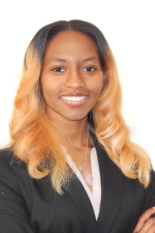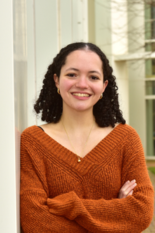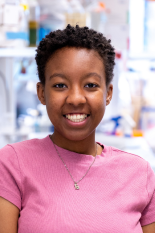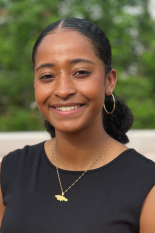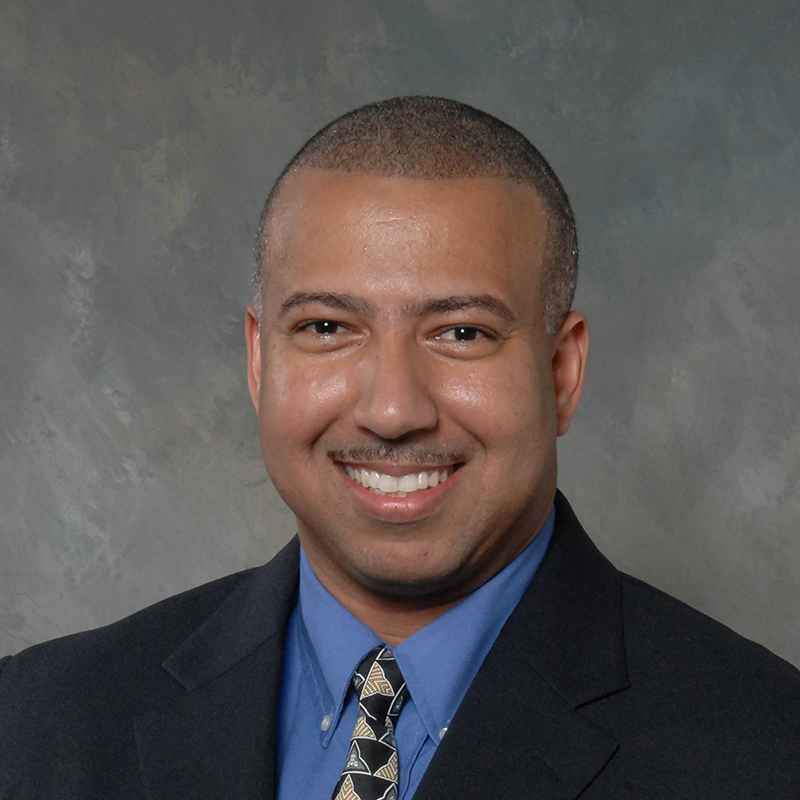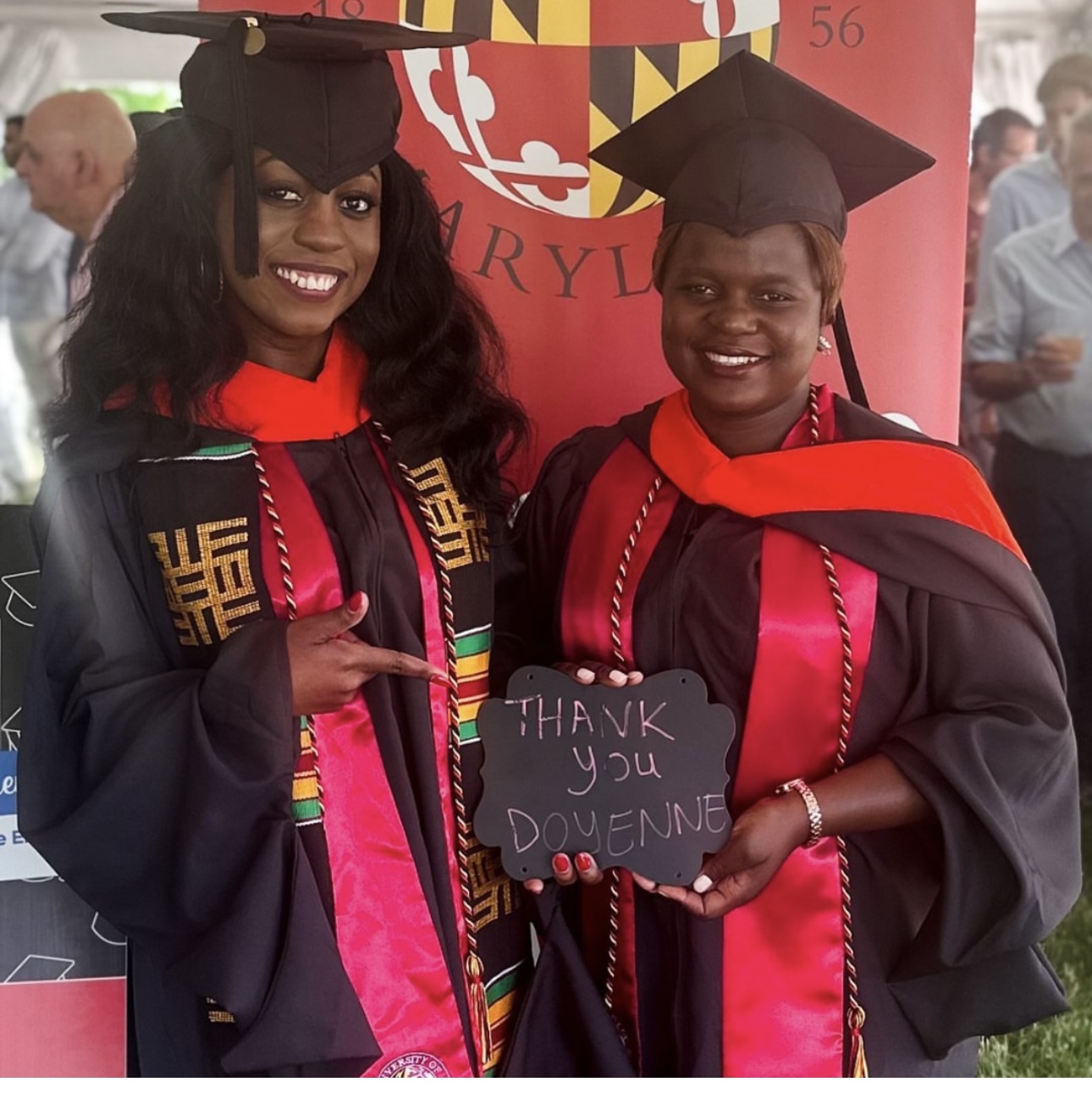News Story
Fischell Institute's Black History Month Spotlight: Aisha Abdulkarimu
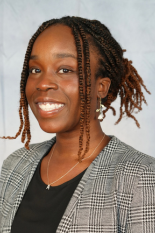
Aisha Abdulkarimu is a third-year molecular and cellular biology Ph.D. student in Fischell Institute Affiliate Fellow and BIOE Assistant Professor Katharina Maisel's Mucosal Associated Immune System Engineering and Lymphatics lab. Abdulkarimu earned her bachelor's degree in biology from Lehigh University in 2020.
After researching various Ph.D. programs and institutions, Abdulkarimu decided to return home to the DMV area to attend the University of Maryland for its Biological Sciences Ph.D. Program.
"I loved that the BISI program is an interdisciplinary, umbrella program, so despite having a microbiology background, I could tap into different research areas and expand upon my current knowledge and technical skill set through ongoing research," she said. "Many schools have interdisciplinary programs, but BISI is different. The support provided to graduate students is extensive. Being a UMD student provides access to a rich scientific environment in the DC-metro area through connections to off-campus research labs like NIH, FDA, and the UMD School of Medicine to collaborate with researchers nearby."
Abdulkarimu has always had an interest in science, technology, engineering, and mathematics (STEM). As a child, she wanted to be a pediatrician after having an asthmatic younger brother. However, upon attending Wheaton High School, she participated in the Biomedical Magnet Program, which further sparked her interest in biology and uncovered her love for research. In the program, she had her first hands-on research experience through the American Chemical Society's Project Seed. That experience taught her to be courageous and confident in herself.
The inspiration to pursue her doctorate in molecular and cellular biology was sparked during her research experiences with Project Seed and grew during her undergraduate research experiences, including working on isolating soil-derived bacteriophages through the Rapidly Accelerated Research Experience program at Lehigh University.
Abdulkarimu’s research aims to understand lymphatic functions in disease and identify therapeutic targets, specifically in regard to lymphatic permeability. If the human lymphatic system malfunctions, it can “leak”, leading to a poor immune system response. Her current focus seeks to understand how different mechanical cues can affect the transport and permeability properties of lymphatic endothelial cells, which play a significant role in immune system responses.
"My work excites me because of its impact," she said. "Lymphatic research is often ignored, and more ongoing research in this area needs to be done. My research will have an incredible impact on science and society. It will provide many individuals with a healthier and better quality of life."
At first, Abdulkarimu was hesitant to join Maisel's lab because none of the lab's research areas were directly connected with her previous research experiences. Still, she was interested in the work, and her gut told her to take the chance.
"A Ph.D. is a very challenging endeavor,” she said “I am truly grateful to Dr. Maisel and my labmates for being so supportive and providing a lighthearted environment. I am so proud of taking this leap of faith because I have learned so much about myself and ongoing research. Plus, I get to wear a pink lab coat!".
In the future, Abdulkarimu hopes to become a research scientist to continue her work in lymphatic, cell biology, and mechanobiology. She is also interested in mentoring and outreach.
"If it were not for the opportunities I had growing up, I would not be where I am today, and I am forever grateful,” Abdulkarimu said. “For this reason, I would love to incorporate mentoring and outreach into my position post-grad, maybe bringing in high school and undergraduate interns to work with me. I am also interested in STEM education and students' accessibility to it. I would love to figure out extracurricular activities I can be involved in to encourage exposure to STEM for students from low-income, underprivileged families."
Abdulkarimu believes that being the daughter of Nigerian immigrant parents, her experiences as a Black woman in STEM, and her upbringing in a low-income household taught her the ability to persevere.
"I grew up watching my parents work tirelessly in a country they were unfamiliar with and did not fully comprehend," she said. "From a very young age, my parents taught me how to be self-sufficient, hardworking, and independent. With this, I bring a great deal of determination and responsibility toward research that I can bring to my academic and career path and is ultimately my driving force."
Abdulkarimu believes as a Black person, she is often viewed as not good enough.
"We go above and beyond for our careers and passions. We have to be more than perfect, and still can be told we are not good enough," she said. "So we need to celebrate Black History Month to recognize all the amazing and beautiful Black individuals in this world that are making an impact on society and the world around us, and let them know they are appreciated every month. We celebrate them and their achievements and their impact."
Outside of the lab, Abdulkarimu enjoys attending concerts, visiting museums, going to farmers' markets with her mom or siblings, and eating out with family and friends. At home, she likes to read, cook, and watch television after a long day in the lab.
Published February 5, 2024
